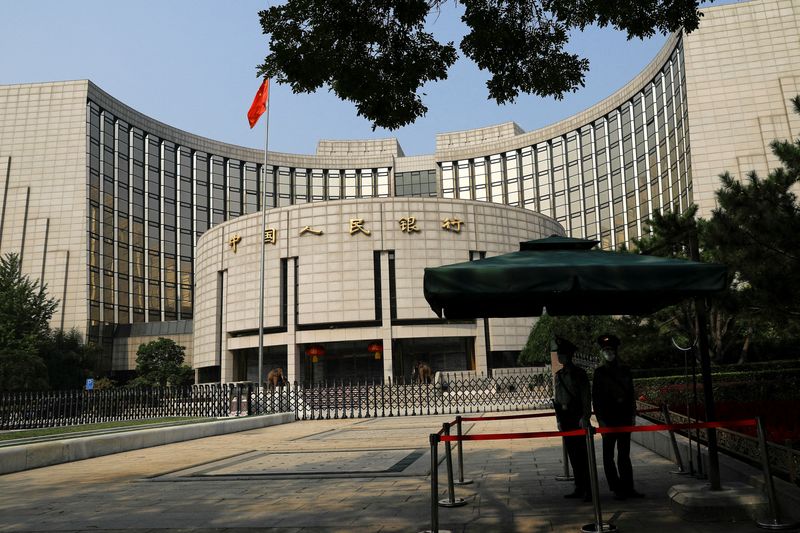By Qiaoyi Li and Kevin Yao
BEIJING (Reuters) -China's new bank loans jumped more than expected in June from the previous month, helped by central bank efforts to support the economy as a post-pandemic recovery fades.
Chinese banks extended 3.05 trillion yuan ($423.45 billion) in new yuan loans in June, more than double May's tally and beating analysts' forecasts, data from the central People's Bank of China showed on Tuesday.
Economists polled by Reuters had predicted new loans would climb to 2.34 trillion yuan last month, versus 1.36 trillion yuan in May.
"Clearly, the market needs more time and information to assess the strong credit figures for the end of Q2 - while it looks similar to Q1 data, the market will definitely interpret with caution," said Zhou Hao, economist at Guotai Junan International.
"In our opinion, the most important is to gauge the housing sales across the country, which will provide a fresh perspective of the linkage between credit data and household sentiment."
Household loans, primarily mortgages, rose to 963.9 billion yuan in June from 362.7 billion yuan in May, while corporate loans soared to 2.28 trillion yuan last month from 855.8 billion yuan in May, according to the central bank data.
Chinese banks doled out 15.73 trillion yuan in new loans in the first six months of 2023, the highest first-half number on record, the data showed.
China's new household yuan deposits climbed to 11.91 trillion yuan in the first half from 10.33 trillion yuan a year earlier, as families build up savings and reduce spending to repair balance sheets after three years of COVID curbs.
China's central bank on Monday extended until the end of 2024 some policies in a November rescue package to shore up the property sector.
A post-COVID recovery in the world's second-largest economy is faltering. Producer prices fell at the fastest pace in over seven years in June and consumer prices teetered on the verge of deflation.
Premier Li Qiang, during a meeting with economists last week, pledged to roll out policy measures in a timely manner to stabilise growth and employment.
To support the economy, the central bank cut its benchmark lending rates by a modest 10 basis points in June, the first such reduction in 10 months.
The central bank has also pledged to implement a prudent policy in a "precise and forceful manner".
Broad M2 money supply rose 11.3% in June from a year earlier, above the poll's estimates of 11.2%. M2 expanded by 11.6% in May from a year earlier.
MORE POLICY STEPS NEEDED
Outstanding yuan loans grew by 11.3% in June from the year before, the lowest in five months, compared with 11.4% growth the previous month. Analysts had expected 11.2% growth.
Year-on-year growth of outstanding total social financing (TSF), a broad measure of credit and liquidity in the economy, slowed to 9.0% in June - the lowest on record - from 9.5% in May.
"The continued deceleration adds to the headwinds to the economy in the second half of the year," analysts at Capital Economics said in a note.
"Further policy support is probably on the way, but we doubt this will drive much of a pick-up in credit growth given the weakness of demand," the analysts said, expecting another 10bp rate cut before long.

TSF includes off-balance sheet forms of financing that exist outside the conventional bank lending system, such as initial public offerings, loans from trust companies and bond sales.
In June, TSF jumped to 4.22 trillion yuan from 1.56 trillion yuan in May. Analysts polled by Reuters had expected June TSF of 3 trillion yuan.